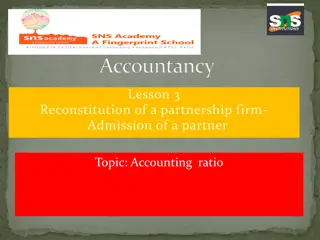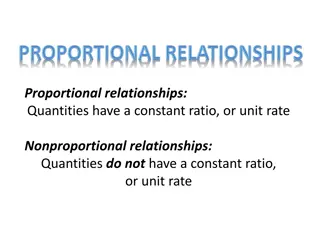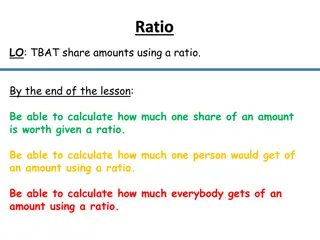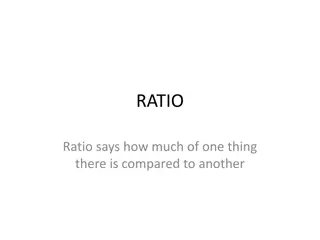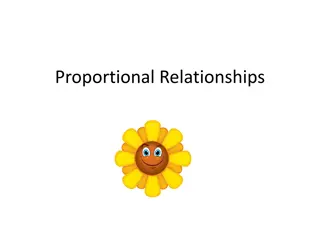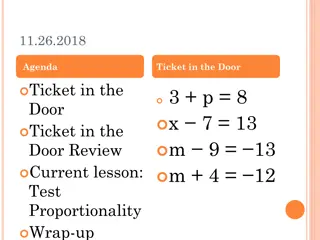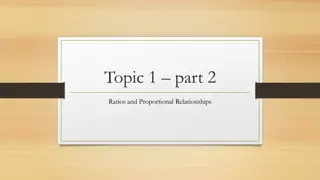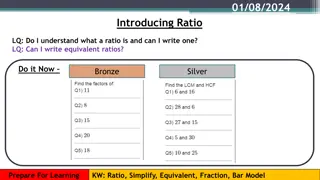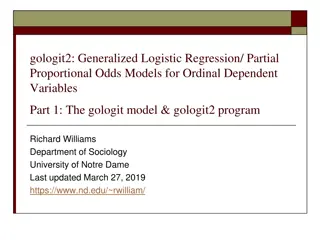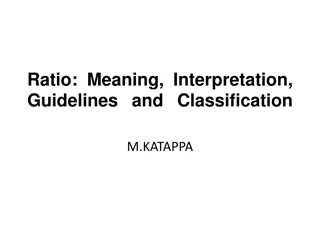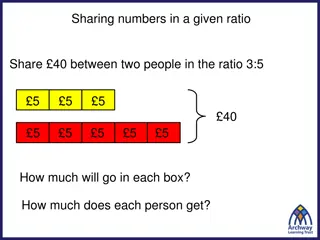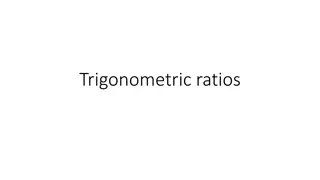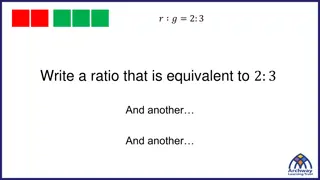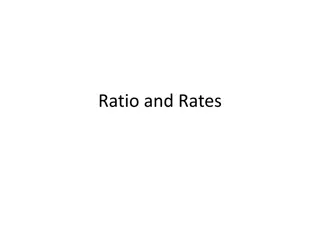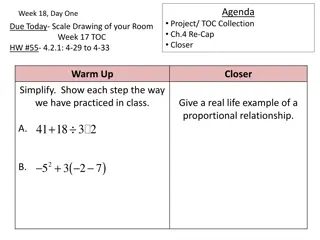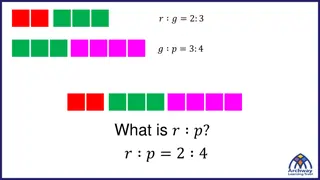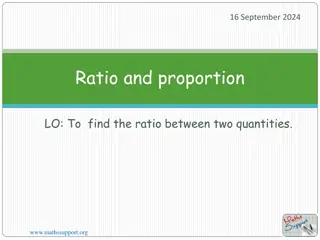
Understanding Ratios and Proportions in Math
Explore ratios and proportions in math with a focus on analyzing proportional relationships to solve problems. Learn how to compute unit rates, including complex fractions, and practice through engaging activities. Prior knowledge of basic operations is needed to grasp these concepts effectively.
Uploaded on | 0 Views
Download Presentation

Please find below an Image/Link to download the presentation.
The content on the website is provided AS IS for your information and personal use only. It may not be sold, licensed, or shared on other websites without obtaining consent from the author. If you encounter any issues during the download, it is possible that the publisher has removed the file from their server.
You are allowed to download the files provided on this website for personal or commercial use, subject to the condition that they are used lawfully. All files are the property of their respective owners.
The content on the website is provided AS IS for your information and personal use only. It may not be sold, licensed, or shared on other websites without obtaining consent from the author.
E N D
Presentation Transcript
Ratios and Proportions Zeb Hammond
State Standards 7thGrade Missouri Learning Standards (MLS) 7.RP.A.1 7thGrade Common Core State Standards CCSS.MATH.CONTENT.7.RP.A.1 CCSS.MATH.CONTENT.7.RP.A.2
Objective Analyze proportional relationships and use them to solve problems. Compute unit rates, including those that involve complex fractions, with like or different units.
Students will need to know how to read and write. Students need to identify the numerator and denominator. Students will need to know how to add, subtract, multiply, and divide. Prior Knowledge Needed
https://www.youtube.com/watch?v=sdQzHPwr G4o Let s look at an example of how to compute a problem with unit rates by simplifying complex fractions.
Lets try this as a class. Grandma s famous pie recipe used 2/3 cup of sugar for every 2 teaspoons of milk. How much sugar was used per teaspoon of milk? A. 3 B. 1 1/3 C. 2 2/3 D. 1/3
Answer To solve, take 2/3 divided by 2 (2/3 / 2) To find the answer of 2/3 / 2, you can multiply the reciprocal: 2/3 X 1/2 = 2 x 1 = 2 = 1 3 x 2 6 3 The answer is D. 1/3
Now its your turn! Complete the activity worksheet Unit Rate - Complex Fractions.

